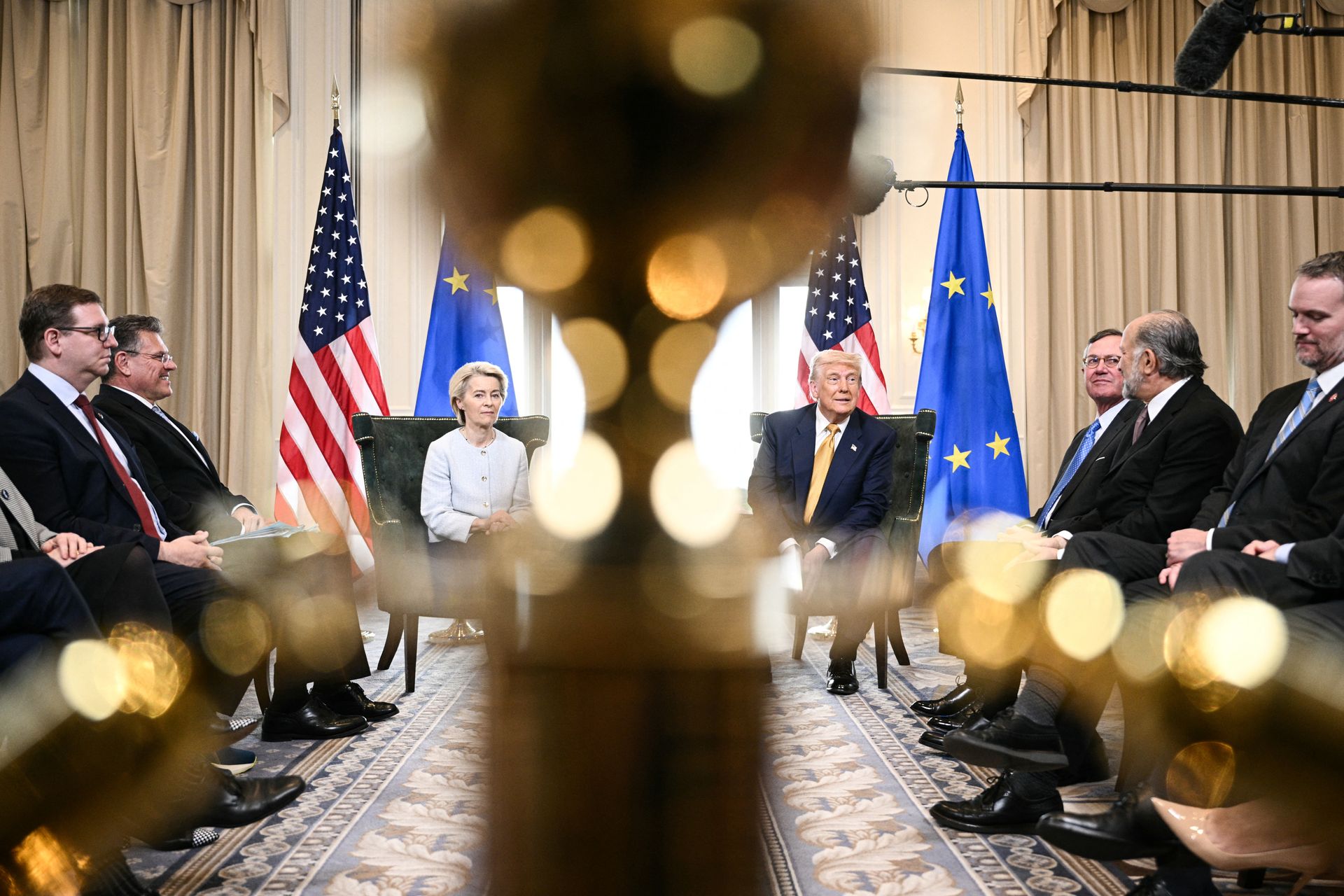In Trump first, US sanctions Russia's oil giants Rosneft and Lukoil after White House cancels Putin meeting

Editor's note: This is a developing story and is being updated.
The U.S. has imposed sanctions on Russia's two largest oil companies, Rosneft and Lukoil, in an effort to pressure Moscow into agreeing to a ceasefire, the U.S. Treasury announced on Oct. 22.
The measures are the first new sanctions U.S. President Donald Trump has imposed against Moscow since taking office in January.
"Now is the time to stop the killing and for an immediate ceasefire," Treasury Secretary Scott Bessent said. "Given (Russian) President (Vladimir) Putin's refusal to end this senseless war, Treasury is sanctioning Russia’s two largest oil companies that fund the Kremlin’s war machine."
The new penalties, meant to pressure Moscow to accept a ceasefire, come after planned diplomatic talks between the U.S. and Russia fell apart. Trump and Putin were previously set to meet in Budapest at an unspecified date, but the White House later announced the summit was canceled.
"It didn't feel like we were going to get to the place we have to get — so I canceled it, but we'll do it in the future," Trump said.
Trump, who met NATO Secretary General Mark Rutte in the White House the same day the new sanctions were announced, described the move as a "very big day in terms of what we’re doing.
"Those are against their two big oil companies, and we hope that they won't be on for long. We hope that the war will be settled. We just answered having to do with the various forms of missiles and everything else that we're looking at," Trump said.
The U.S. sanctions have also been imposed on Rosneft and Lukoil's subsidiaries.
The measures stipulate that foreign financial institutions that conduct transactions involving Russia's military-industrial base risk being sanctioned. Engaging in transactions with sanctioned entities could also result in secondary sanctions, according to the U.S. Treasury.
Ukraine welcomed the move as it continues to fend off Russian attacks on its cities and critical infrastructure.
"For the first time in office as the 47th President of the United States of America, Washington has passed a decision to impose full blocking sanctions against Russian energy companies," Ukraine's ambassador to the U.S., Olha Stefanishyna, said.
The sanctions announcements follow a large-scale missile and drone attack on energy infrastructure across Ukraine that killed six people and injured at least 44 overnight on Oct. 22.
Later, the following evening, explosions, fires, and damaged buildings were reported in Kyiv amid another Russian drone attack on Ukraine's capital.
Rutte praised the new measures as Ukraine and its allies continue to call for an immediate ceasefire.
"It's all about changing the calculus, making sure that Putin understands that the president's vision this weekend of having a ceasefire, stop where they are... This has to be step one now," he said in the White House.
The Kremlin has refused to agree to a ceasefire and, in recent days, reportedly continued to insist that Ukraine surrender all of Donetsk Oblast as a precondition for a peace as the White House pushes to broker a settlement to end Russia's war.
On Oct. 20, Kremlin spokesperson Dmitry Peskov said that Moscow's position regarding the possibility of ceasing hostilities along the current front lines in Ukraine has not changed.
Trump has previously avoided sanctioning Russia directly, insisting that the threat of future penalties was an important tool in peace negotiations.












